- Home
- Peter Cawdron
Monsters Page 10
Monsters Read online
Page 10
“There is a natural order for mankind,” the judge cried, his voice bellowing out through the marketplace. “There is a natural place for man. We have neither wings with which to fly in the sky, nor gills with which to breathe under water. We have our place in nature. To usurp this, to steal the fire of knowledge from the gods, is folly.
“Reading unsanctioned books is evil. But it is the nature of man to become intoxicated with knowledge, to become drunk on his own ego, to think he can ascend into the heights like a bird or to have mastery of the deep like a whale. It is knowledge that brought the Fall upon man. Knowledge is a tree laden with forbidden fruit, poisonous and noxious.
“And why would a man partake of that which is evil, of that which will only ever bring misery? Once man thought he could have mastery of this world and billions died because of his arrogance. The hubris and presumption of man has brought nothing but suffering.”
Jane held Bruce's arm, her fingernails dug into his skin. He went to move, to stand and say something but she held him back, growling at him under her breath. The villagers around them murmured.
“Let this be a lesson,” the judge continued. “We cannot abide such egotism, such delusions of grandeur that cause a man to forsake the common good, to think he is above the rest of us, that he can determine for himself right or wrong.
“And there are others. This man, this Socrates as he called himself, he told us of several others, of Shakespeare and Sherlock, and of a woman, Elizabeth Bennet. If you know who these people are, save them from themselves, save them from the blindness of arrogance that compels a man to seek the deceit of forbidden wisdom.”
The villagers spoke among themselves in hushed whispers. Jane spoke softly in Bruce's ear.
“Please, don't. Don't do anything foolish. There's nothing we can do for him.”
Bruce shifted in his seat, anger welling up within him.
“He knows,” Jane whispered. “He's taken the oath. He's part of the pact. If any of us are caught, we know we're on our own.”
“This isn't right,” Bruce replied, struggling to keep his voice down. Around them, villagers stared, their beady eyes picking the two of them out of the crowd.
“It's too dangerous,” Jane said, her words barely audible. “Not for us. For the books. If they find the library they'll burn the books. We have to preserve that knowledge for future generations, even if it costs us our lives. Hugo knows that. He accepts that. There's nothing we can do.”
Bruce stood, pulling against her, rising above the sea of heads seated around him.
“Hasn't he suffered enough?” he asked aloud, his voice carrying through the market.
Bruce couldn't contain himself. How could any of these people live with themselves? He had to speak up, and would have spoken up regardless of whether he'd learned to read or not. It was not right.
Bruce hoped his few words were tactful enough to make the point without undermining judiciary authority. It was a good question, or at least he thought so. It needed to be said.
“No,” Jane whispered. “Don't you understand? This is what they want. They are trying to goad you. It's a trap.”
Bruce spoke under his breath, saying, “Reading is not a crime.”
The villagers around them stared, catching their words and murmuring among themselves.
The judge took his time before addressing Bruce.
“You disagree with our ruling?”
“I am nothing but a lowly farmer,” Bruce replied. “I mean no disrespect. I see here a man punished beyond anything I have ever seen before, even in the bitter heart of war.”
The judge was silent, as was the crowd, and Bruce felt as though he were slipping a noose around his own neck.
“If a man steals from me, I would seek recompense from the court. If a man were to argue and fight, I would want a fair trial, that justice may be done. If he were to kill one of my kin, I would not exact my own revenge, I would seek a judge to rule and mete out judgment as appropriate.”
A murmur of agreement rippled through the crowd. Bruce was stalling, trying to gain agreement from both the judge and the villagers as to what was appropriate, hoping they would see how barbaric they were. For him, this wasn't about reading or any other crime, imagined or real, this was about rousing slumbering morals. Such brutality was not seen among beasts. These people were worse than monsters. Bruce didn't dare say what he was thinking. He tried to appeal to reason.
“In my ignorance, it seems this man has neither stolen from me, nor hurt my family, nor struck down my kin, and yet he has suffered intensely for his crime.”
Looking at the judge, Bruce could see the old man's eyes narrowing as he listened intently. Whether it was to trap him in his words, or whether he was genuinely considering his arguments, he wasn't sure, but it was out of character for a justice to let a commoner talk so freely in a public forum. By seeming to acknowledge Hugo as a criminal, Bruce hoped he was addressing his grievance without attacking the judgment.
Jane sat beside him, rocking back and forth slightly, saying, “Sit down. For the love of all that is sacred, please sit down.”
“And what would you have us do with this man?” the judge asked. “Would you have us set him free?”
“If he has murdered a man or raped a woman, we would execute him,” Bruce replied.
“Oh, but we will execute him,” the judge said. “He will burn at the stake.”
“But don't you see,” Bruce cried, pointing at the shell of the man quivering in fear. “He is twice dead. You may not have killed his body, but you have destroyed his soul. Is there such a crime that deserves such punishment? More than we would mete out to a murderer?”
A murmur resounded through the crowd, growing in volume as the villagers agreed with his logic.
“I ask only that the court consider his crime on balance with his punishment. I am but a simple man. For me, there is hunting and fishing, tilling the fields and harvesting a crop. I mean no disrespect. I mean only to be honest before the court. This wretched man has lost his sight, he can no longer see, he can no more read than I can fly to the moon. I ask the court to consider an appeal for mercy. I ask that the court shows leniency.”
With that, Bruce sat. Jane gripped his arm. “What have you done?” she whispered. “What have you unleashed?”
“I'm sorry,” he replied softly so only she could hear. “I just couldn't bear to sit by without saying something, anything. What if that were you? What if that were me?”
The chief justice conferred with several other judges, talking intently with them. At least one of the judges seemed to agree, debating quite passionately with the others. The noise of the crowd rose as the villagers talked about what had been said. Some agreed, some disagreed. No one, it seemed, was impartial. Several people sitting near Bruce reached out, patting him on the back and on his shoulder, showing their support.
The justices finished their deliberation. The chief justice brought his gavel down, calling for order. He signaled to the guards and they moved in from both sides, pushing their way down the row of peasants before grabbing Bruce. They lifted him up and dragged him back to the aisle.
“No!” screamed Jane. “No, you can't do this.”
Bruce felt a lump form in his throat. He'd never experienced such violent authority being so roughly imposed by another. Even when he was at war, authority had been more of a threat than reality. Here the judge's authority was arbitrary and brutal. At the mere wave of a hand, these soldiers had carried out their unspoken orders without a moment's hesitation, forcibly imposing the judge's will. Bruce felt powerless. He looked back at Jane. She was screaming at the guards, pulling on one of their arms.
“Let him go, you monsters!”
“Shut up, wench,” cried the guard, grabbing her and throwing her violently backwards into one of the benches.
“Please no,” Jane sobbed as she lay there on the dusty ground, her dress torn in the scuffle.
“All is well,” the judg
e called out above the commotion. “Bring him forward.”
The guards brought Bruce before the judge, releasing him and standing back to one side. The crowd was restless. Voices cried out in anger. Again, the judge brought down his gavel, calling for order, demanding submission. Bruce stood there silently, expecting to be struck down from behind and brought to his knees, but the blow never came.
“You chose to speak for this man? For this reader who can never read again?”
“I did,” Bruce said, looking the judge in the eye. He was trembling, which surprised him. His right leg was shaking, his hands twitched involuntarily, and he found his mind racing, wondering what would transpire over the next few minutes. Bruce wondered if he'd live to regret those words spoken in haste. He wondered what would unfold, wondering if these few minutes would plague him for the rest of his life, but in his mind he was defiant.
Reason told him these were just men, no more or less a man than him, but emotionally he felt they held the power of life and death over both him and Jane. Bruce may have been bold enough to speak up, but the quiver in his voice betrayed the fear welling inside. Those two brief words, admitting to nothing more than his conviction, left him feeling as though he'd confessed to murder.
The chief justice set his face like a stone. Hard lines ran down his aging cheeks. With down-turned lips he spoke in an even tone, and Bruce felt goose bumps rising on his skin.
“It is in the interests of this court to see that justice is carried out impartially and without prejudice. We cannot tolerate evil in any form, be it theft or murder, rape or reading, and yet it is the opinion of this court that this commoner has a valid concern. Punishment must be weighed against each crime, and Hugo Travers has suffered for his crime. It is the decision of this court that a public spectacle be made of this man.”
The justice motioned his head toward one of the other judges standing to one side.
“Justice Chambers notes that to kill such a one as this is akin to making him a martyr—a hero to a cause that knows no scruples. In this regard, with due consideration being paid to the punishment already inflicted, it is the decision of this court that Hugo Travers live as a lasting testament to the folly of reading. He is released into your custody. You have spoken for him. You shall bear his burden. He shall be an example of madness.”
The judge brought down his gavel, sealing his judgment.
“This decision is binding.”
Bruce stood there stunned as the guards brushed past him. They struggled with the metal collar around Hugo's neck, prying it open.
“Guilty,” Hugo mumbled. “Please, I am guilty, guilty, guilty.”
Bruce rested his hand on Hugo's shoulder as the guards pulled him to his feet. Hugo flinched, expecting to be struck again, trying to absorb the blow. By moving in sync with what he must have assumed was another savage beating, Hugo still had some semblance of self-preservation demanding he survive a little longer. Even with all he'd been through, his instinct for life drove him on. Bruce found himself overwhelmed by a sense of pity.
“Guilty,” Hugo whimpered.
“It's OK,” Bruce said. “Everything is going to be all right.”
He put his arm around Hugo's shoulder, helping the man as he stumbled forward.
The judge brought his gavel down, silencing the unrest in the crowd as he cried out, saying, “The case of Evan James verses Timothy Clarance, in the dispute over lands in the Forest of Dross will now be heard.”
Bruce led Hugo away, taking him from the market and into a side alley.
“I'm guilty,” Hugo continued, unable to comprehend what had happened.
Jane came up beside them, tears streaming down her cheek.
“You're stupid. You are so stupid,” she said. Bruce smiled, taking her concern as a compliment.
“Oh, Hugo,” she added, seeing the poor man hunched over. “It's going to be all right. We're going to take care of you. You're safe. There's nothing to worry about.”
They brought Hugo back to her father's house above the forge. The old man was furious when he saw how Hugo had been treated.
Hugo was still in shock, and Jane was worried about his mental state. She said she wasn't sure if he'd ever recover properly.
Over the next few days, they tended to Hugo's wounds, bathing him in warm water, giving him a bed to sleep in, fresh clothes to wear and fresh meats and vegetables to eat.
Slowly, Hugo responded.
On the third day, Hugo spoke for the first time since the trial. Jane was preparing a stew for dinner while her father finished up in the forge. Bruce had been out working in one of the mills. As he sat down at the table opposite Hugo, the old man sensed his presence and spoke with unexpected clarity.
“Thank you for seeking mercy and saving my life.”
Bruce smiled, not that Hugo would have known.
“We were glad to help,” Bruce said modestly.
Jane wiped her hands on her apron, left the stew to simmer over the open fire and sat down at the table with them. She reached out and held Hugo's hands. Bruce watched as Hugo's frail fingers gripped her hands, pulling her slightly closer. In his mind, locked in perpetual darkness, he must have relished the touch of another bringing warmth and kindness into his pitch black world.
“You have nothing to fear,” Jane said softly.
Hugo must have realized how hard he was gripping her hand. He released his grip. Jane patted his hand gently.
“It's only been a few weeks since I was captured,” he said. “But my life seems like one lived by two different people. It is as though there have been two minds inside just one body. Before all this, there are only fleeting memories, dreams of a life that doesn't seem as though it were ever real. Now, I feel as though I am dead already.”
“Don't say that,” Jane said, troubled by what she was hearing. But Bruce understood. He'd felt the same way following the death of his brother.
“Your kindness,” Hugo continued. “Your love for a stranger—it is overwhelming.”
“You have been through much,” Bruce said, reaching out and resting his hand on Hugo's forearm, understanding the blind man's need for touch, realizing it must have given him a sense of grounding that had been lost with his sight. “They will not hurt you again.”
Hugo was silent. Although his one remaining eye was blind, it moved as his eyelids flickered, revealing his mind processing a host of conflicting thoughts and emotions.
“I am a burden,” he said.
“You are not,” Jane replied emphatically.
“I am blind. There is nothing I can be but a burden.”
“You have read,” Jane said. “You have seen more than those with sight will ever know. It is those ignorant souls afraid to read that are blind. They may see the blue sky and the green fields, but they will never see the clarity of reason.”
“But I will never read again,” his chest heaving as he spoke.
“I will read to you,” Jane said.
Hugo's cheek quivered, his lip twitched.
“It is early days,” Bruce said, seeing the emotion welling up within the old man. “Do not trouble yourself with such thoughts. We are honored to have you with us. We will care for you as best we can, as a son would care for his aging father. Give yourself time to adjust, Hugo.”
“Your pace of life has changed,” Jane said. “But you are alive. Rejoice in that, my friend.”
“Thank you,” Hugo said, pulling his hands back. “Thank you, Elizabeth Bennet.”
Bruce smiled at Jane. She looked shocked, but she shouldn't have been, thought Bruce. It was a guess on Hugo's part, of that he was sure, but there were few that would care for a blind reader other than another reader.
“I've got to get some more firewood,” Bruce said, standing up and resting his hand on Hugo's shoulder. “It's good to have you with us, Hugo.”
Jane got up and tended to her stew, talking with Hugo as Bruce went outside. At the bottom of the stairs was a small piece of paper, fo
lded and stuck into one of the gaps in the wood. Bruce opened it and took it to Jane.
Thank you for saving my friend,
Shakespeare.
“What do you think it means?” Jane asked, having read the note aloud to Hugo. “Did you know him? Did you know who Shakespeare is?”
“No,” Hugo replied. “Perhaps he lives here in this village? Or maybe he is one of the judicial group.”
“Justice Chambers?” Jane asked. “He spoke up for your release.”
“I don't know,” Hugo replied.
“He's too young,” Jane said. “I'd always thought of Shakespeare as older.”
“Either way,” Bruce said. “We are exposed, far too exposed. We need to get back to the farm and lay low.”
Chapter 04: Hugo
Hugo journeyed with them back to the farm.
As the days passed, Hugo grew stronger and more confident, adjusting to life without the aid of sight.
Hugo had been a baker in the village of Eigerville. He'd been betrayed by his own son. After his wife had died of typhoid, his son had grown more distant, blaming Hugo and his reading for the death of his mother. When Hugo's grandson fell ill with fever, his son blamed him and turned him over to the authorities. For Hugo, there was nothing to go back to in Eigerville.
Hugo was passionate about remaining active. After little more than a week, he was getting around the farmhouse by himself. He walked with the side of his hand brushing gently against the walls, the bench, table and chairs, lightly touching them as he moved, giving himself a point of reference from which to locate himself within his mental map of the cabin.
Having returned early from the fields one day, Bruce watched Hugo silently from the open doorway, but somehow Hugo knew he was there even though he hadn't said a word.
“Do you pity me?” Hugo asked, turning roughly toward where Bruce stood with the sun warming his back.
“I don't know if pity is what I was thinking,” Bruce replied, being honest in response to the old man's candor. “More surprised at how well you negotiate yourself around all our clutter.”

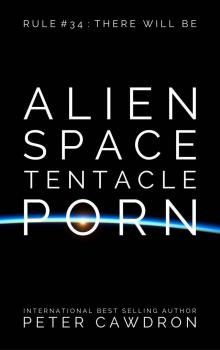 Alien Space Tentacle Porn
Alien Space Tentacle Porn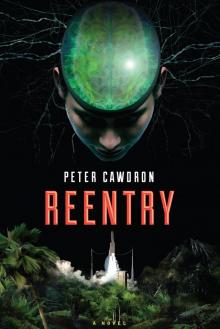 Reentry
Reentry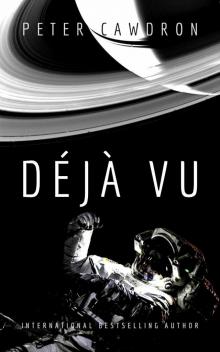 Déjà Vu (First Contact)
Déjà Vu (First Contact) Wherever Seeds May Fall (First Contact)
Wherever Seeds May Fall (First Contact)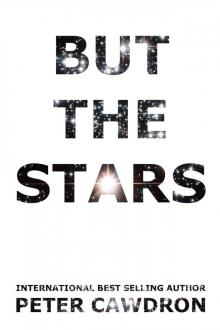 But The Stars
But The Stars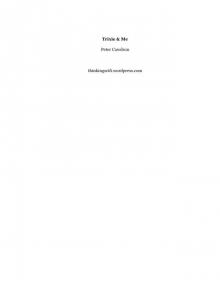 Trixie & Me
Trixie & Me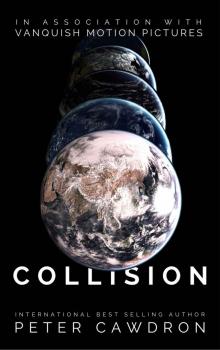 Collision
Collision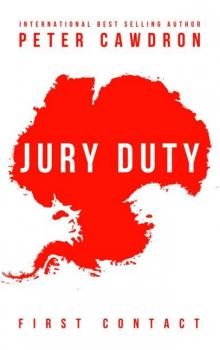 Jury Duty (First Contact)
Jury Duty (First Contact) Losing Mars
Losing Mars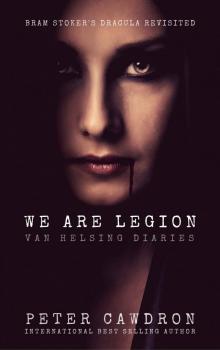 We Are Legion (van Helsing Diaries Book 2)
We Are Legion (van Helsing Diaries Book 2) Van Helsing's Diaries (Books 1-3): Nosferatu
Van Helsing's Diaries (Books 1-3): Nosferatu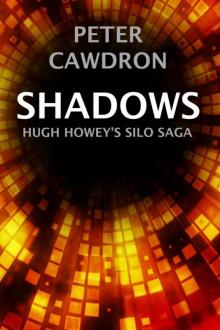 Shadows
Shadows 3zekiel (First Contact)
3zekiel (First Contact) Vampire (van Helsing Diaries Book 1)
Vampire (van Helsing Diaries Book 1) Xenophobia
Xenophobia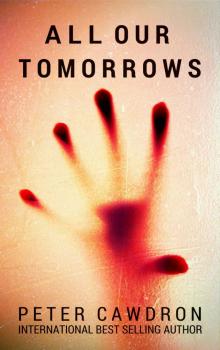 All Our Tomorrows
All Our Tomorrows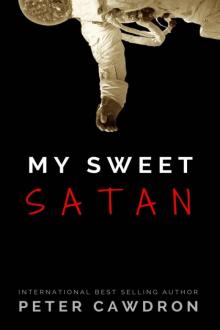 My Sweet Satan
My Sweet Satan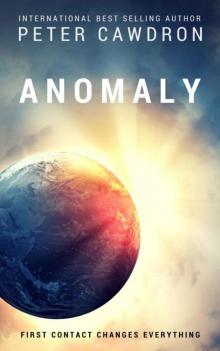 Anomaly
Anomaly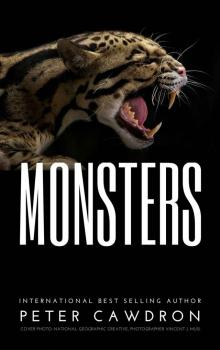 Monsters
Monsters